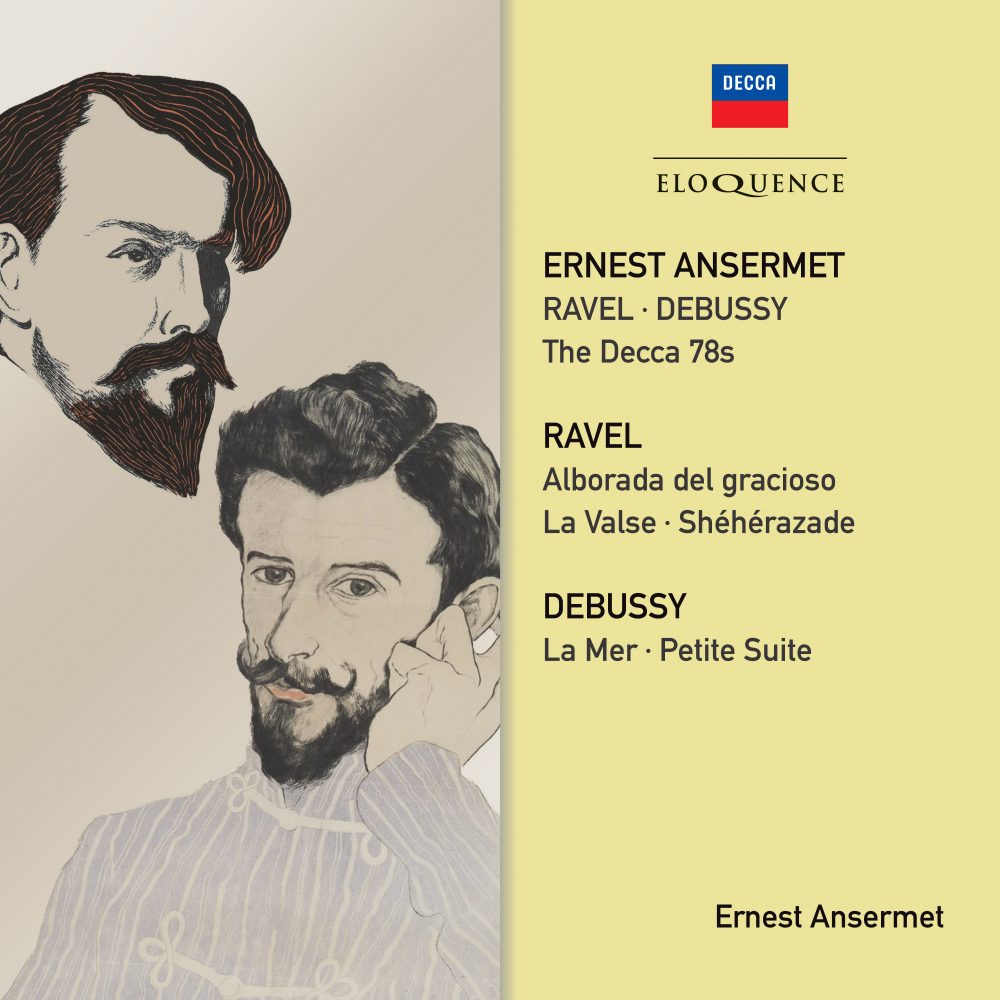In the words of the composer and critic, Virgil Thomson, the unique sonorities of the Orchestre de la Suisse Romande under its founder-director, Ernest Ansermet, were ‘smooth as a seashell, iridescent as fine rain, bright as the taste of a peach’. Ever since its foundation in 1918, the OSR had been coached and trained with relentless attention to detail by the perfectionist Ansermet. As the instrumental voice of its director, the orchestra was honed to deliver faithful and subtly-coloured performances, especially of the turn-of-the-century composers such as Debussy and Ravel who were dearest to the conductor’s heart.
He enjoyed extensive working relationships with both of these composers and they regarded him in turn as an ideally exact and sensitive interpreter. Debussy showed Ansermet the manuscript of the’ Nocturnes’, covered in annotations and amendments. ‘Which are the right ones?’ asked Ansermet. ‘I’m not really very sure,’ replied Debussy, ‘these are possibilities. So take away the score and use the ones you think are right.’ In 1921, after listening to Ansermet conduct a performance of ‘La Valse’, Ravel immediately wrote to him in a state of excitement: ‘You understand ‘La Valse’ perfectly. I have never been able to obtain such rhythmic suppleness in Paris.’
During 1947–48, Ansermet recorded his first discs of music by Ravel and Debussy. ‘La Mer’ was a work that the conductor loved above all others: here is the essence of his conducting style, animated by subtle nuances, powerful sound, balanced timbres and poetic imagination. A comparison of the four recordings he made, from 1947 (the one heard here), 1951, 1957 and 1964, reveals how much Ansermet stayed true to himself: the differences between them are minimal, so polished was the vision of Debussy’s world he had achieved.
Many of Ansermet’s mono-era recordings were made not in Geneva but in Paris, with the Orchestre de la Société des Concerts du Conservatoire, such as ‘La Valse’ and ‘Shéhérezade’. The soloist in Ravel’s sensuous, Orientally coloured song cycle was Suzanne Danco and this is a particular highlight of her slender discography.
MAURICE RAVEL
Alborada del gracioso*
La Valse+
Shéhérazade+
Suzanne Danco, soprano
CLAUDE DEBUSSY
La Mer*
Petite suite (orch. Henri Büsser)+
L’Orchestre de la Suisse Romande*
Orchestre de la Société des Concerts du Conservatoire+
Ernest Ansermet
FIRST CD RELEASE ON DECCA OF ANSERMET’S 1947–48 RECORDINGS OF RAVEL AND DEBUSSY
Recording Producer: Victor Olof
Balance Engineers: Arthur Haddy (Alborada del gracioso, La Valse, La Mer); Kenneth Wilkinson (Shéhérazade, Petite Suite)
Recording Locations: Radio Studio, Geneva, Switzerland, 4 February 1947 (Alborada del gracioso, La Mer); Kingsway Hall, London, United Kingdom, 6 October 1947 (La Valse); La Maison de la Mutualité, Paris, France, 28 May 1948 (Shéhérazade); 1 June 1948 (Petite Suite)
Original Decca 78rpm Releases: K1609 (Alborada); K1867–68 (La Valse); K1966–67 (Shéhérazade); AK1606-8 (La Mer); AK2047–48 (Petite Suite
Remastering Engineers: Chris Bernauer; Mark Obert-Thorne (Alborada del gracioso, with special thanks to Michael Gartz for source material
Eloquence Series Producer: Cyrus Meher-Homji
Art Direction: Raymond Bannerman
Booklet Editor: Bruce Raggatt
‘An authoritative and sensitive reading… [notable for] its accuracy and fidelity of nuance.’ Gramophone (La Mer)
‘Some of the subtlest songs in the modern repertoire, marvellously interpreted and beautifully recorded.’ High Fidelity (Shéhérezade)

